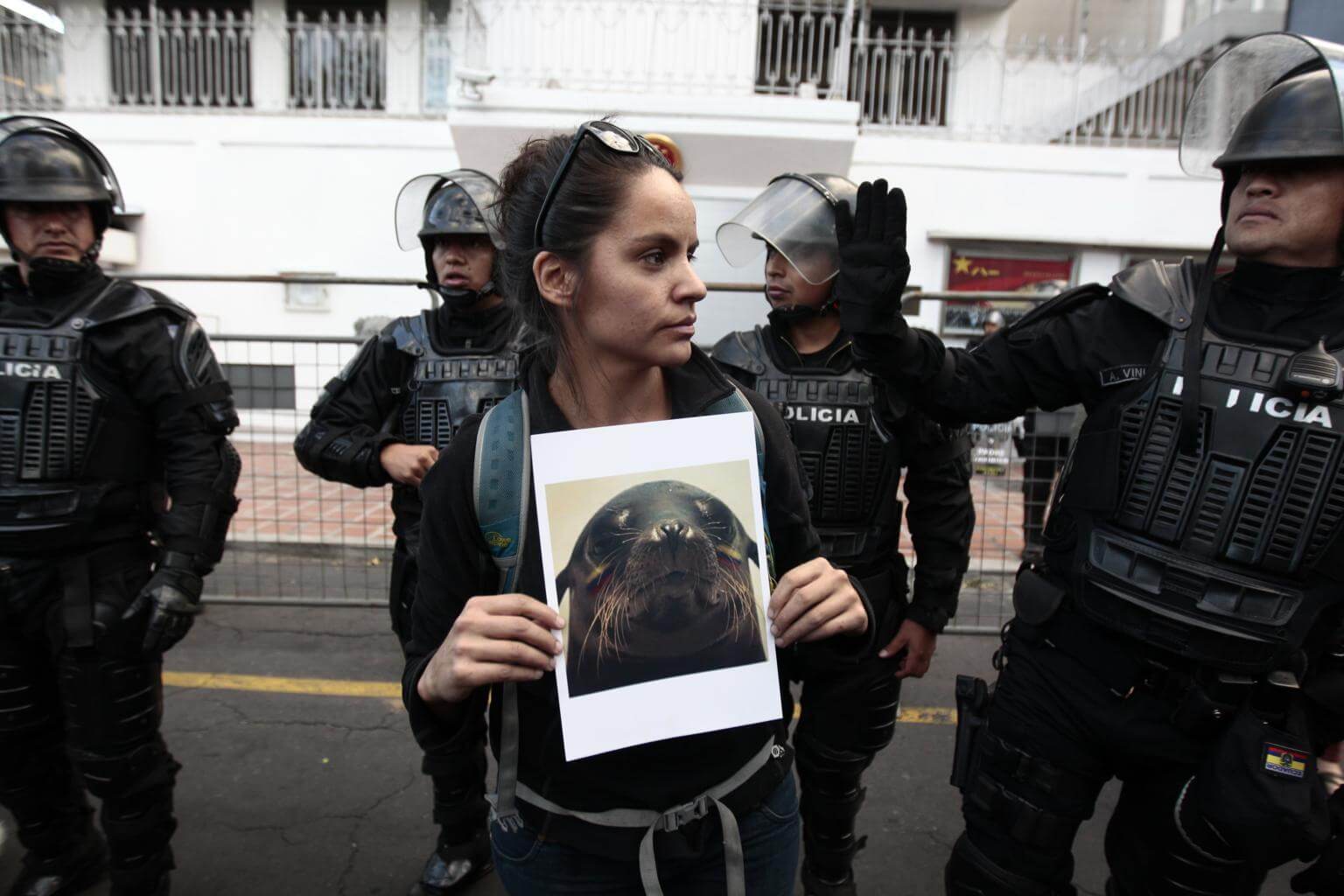Protests in Ecuador after Chinese vessel intercepted with catch of endangered species from marine reserve
Sign up now: Get insights on Asia's fast-moving developments

Police standing around a protester outside the Chinese Embassy in Quito, Ecuador, where a rally against the alleged illegal fishing by Chinese ships within the exclusive economic zone of the Galapagos Islands was being held on Aug 24, 2017.
PHOTO: EPA
Follow topic:
QUITO (Bernama) - Several groups have been taking part in a protest outside the Chinese embassy in the Ecuadorean capital Quito following the interception of a cargo ship with an illegal catch of endangered species in the Galapagos Marine Reserve.
Demonstrators have been using the hashtag #SOSGalapagos to gain support online. The fishing community on the island of San Cristobal in the reserve has joined in the campaign.
The crew of the Fu Yuan Yu Leng 999 vessel remain in detention. Ecuador's Environment Minister Tarsicio Granizo said 300 tonnes of fish, mostly sharks, including protected species such as the hammerhead, were found on board when the navy gained access on Aug 13.
A judge in San Cristobal ordered the Chinese-flagged ship's crew of about 20 to be held in custody pending court proceedings, Mr Granizo said.
Not necessarily all of the catch came from the marine reserve, but the fact that it included young sharks, even baby sharks, indicates that they could have been caught inside the reserve, the minister added.
Ecuadorean law allows prison sentences of up to three years for crimes against protected flora and fauna.
The ship is a freezer carrier vessel, which collects and delivers to port the illegal catch from other fishing boats.
On Monday (Aug 21), the Ecuadorean President Lenin Moreno said he will not allow the violation of maritime sovereignty by "any foreign fishing fleet", referring to 200 Chinese-flagged vessels said to be operating within the exclusive economic zone of the Galapagos Islands.
Ecuador's government has lodged a formal complaint with the Chinese embassy in Quito over the incident.
The islands are located 960km west of the Ecuadorean mainland.
The waters around them, the Galapagos Marine Reserve, are a Unesco World Heritage Site known for the largest abundance of sharks in the world. They are part of a marine corridor spanning the Eastern Tropical Pacific, all the way up to Cocos Island in Costa Rica.
Many sharks migrate along the route, leaving them exposed to fishing fleets waiting outside the reserve's protected waters.
Mr Walter Bustos, director of the Galapagos National Park, told El Universo newspaper that the boat was the largest vessel ever captured inside the reserve.
In 2015, Ecuadorean police seized about 200,000 shark fins that were due to be exported to Asia. The meat is considered to be a delicacy in Chinese cuisine.
Environmentalists believe the demand is wiping out endangered species and fuelling illegal trafficking.
Mr Hugo Arnal, director of the World Wildlife Fund in Ecuador, said Chinese fleets have been known to access the territorial waters of Argentina and Chile, as well as Costa Rica.
"There is a huge industrial fishing fleet, including China's, which is simply wiping out fish stocks," Mr Arnal told Peruvian newspaper El Comercio.

